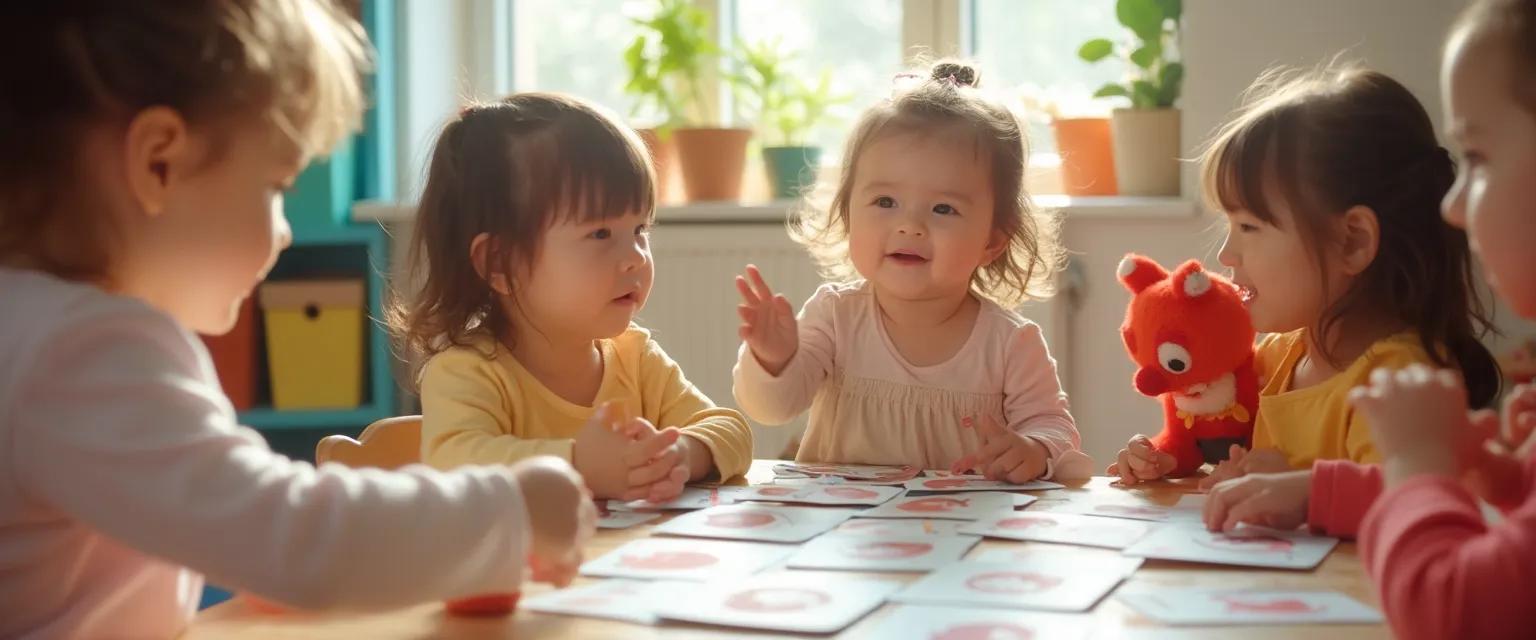7 Playful Games That Nurture Self-Awareness in Early Childhood
Nurturing self-awareness in early childhood lays a critical foundation for emotional intelligence that serves children throughout their lives. Between ages 2-4, toddlers begin recognizing themselves as individuals with unique thoughts, feelings, and abilities. During this developmental window, playful activities naturally foster these skills without feeling like "learning" to either parent or child. Brain science confirms that young children absorb concepts through play more effectively than formal instruction, making games the perfect vehicle for developing self-awareness in early childhood.
The beauty of these seven games is their simplicity – they require no special equipment and fit seamlessly into daily routines. Each activity builds a different aspect of self-awareness, from emotional recognition to bodily awareness. By incorporating these mindfulness techniques for children, parents create natural opportunities for toddlers to develop crucial emotional skills through what they do best: play!
These playful interactions create neural pathways that support emotional intelligence, helping children recognize and manage their feelings from an early age. The foundations of self-awareness in early childhood begin with these simple, joyful connections.
Foundational Games for Self-Awareness in Early Childhood
These first three games establish the building blocks of self-awareness in early childhood by helping toddlers recognize their physical presence and emotional states.
Game 1: Mirror Play
This classic activity directly supports self-awareness in early childhood by helping toddlers connect facial expressions with emotions. Sit facing your child with a small mirror or just use your faces. Make an expression (happy, sad, surprised) and invite your child to copy it. Name the emotion: "Look, we're both feeling happy!" This simple mirroring helps toddlers recognize emotional states in themselves and others – a cornerstone of emotional intelligence.
Game 2: Body Part Detective
Transform routine moments like diaper changes or bath time into opportunities for bodily awareness. Ask your toddler, "Where are your toes?" or "Can you point to your tummy?" As they develop, make it more playful: "Can you touch your elbow to your knee?" This game helps children create a mental map of their bodies, enhancing spatial awareness and physical self-recognition.
Game 3: Feeling Friends
Use stuffed animals or dolls to practice emotional scenarios. Give each toy a feeling: "Teddy is feeling sad today because he dropped his ice cream. How can we help him feel better?" This emotional regulation technique allows toddlers to practice identifying and responding to emotions in a safe, removed context before applying these skills to their own experiences.
Advanced Self-Awareness in Early Childhood Through Interactive Play
As toddlers master basic self-recognition, these games help them develop more nuanced emotional understanding and self-regulation skills.
Game 4: Freeze Dance Feelings
Play music and dance together, calling out different emotions to express physically. When the music stops, freeze in that emotional pose. "Let's dance like we're excited! Now freeze!" This activity connects physical sensations with emotional states, helping children recognize how feelings manifest in their bodies.
Game 5: What Would You Do?
During playtime, present simple scenarios that encourage decision-making awareness: "Your friend is playing with a toy you want. What would you do?" This game helps toddlers recognize they have choices in how they respond to situations, building decision-making awareness.
Game 6: I Spy My Feelings
During daily activities, help your child spot emotions in the world around them. "I spy someone feeling excited at the playground. Can you find them too?" This game helps children recognize emotional cues in others, strengthening their emotional vocabulary and observation skills.
Game 7: Calm Down Corner
Create a special space with soft items, pictures of family, and perhaps a feelings chart. When emotions run high, guide your child to this space: "Let's go to our calm corner and take three deep breaths together." This teaches self-regulation through environmental cues and simple techniques.
Integrating Self-Awareness in Early Childhood Into Daily Life
The real magic happens when these games become part of your everyday interactions. Look for natural opportunities to incorporate them – playing "Body Part Detective" during bath time or "Feeling Friends" while putting toys away. Watch for signs of developing self-awareness: your child naming their feelings, showing empathy for others, or using simple strategies to calm themselves.
As your child grows, these foundations will support more complex emotional skills. Research shows that children with strong self-awareness in early childhood develop better social skills, academic performance, and emotional resilience. By making these games part of your regular routine, you're giving your child emotional intelligence skills that will benefit them throughout life.




